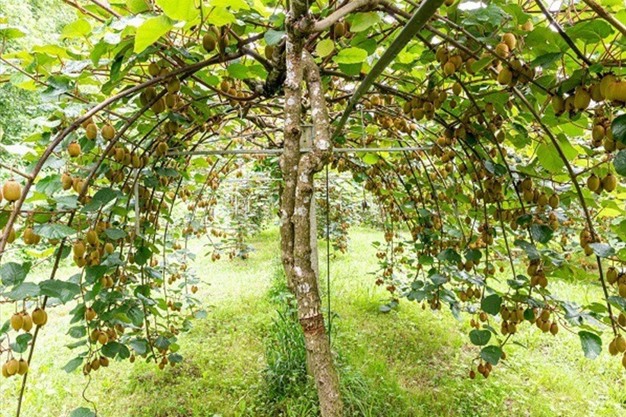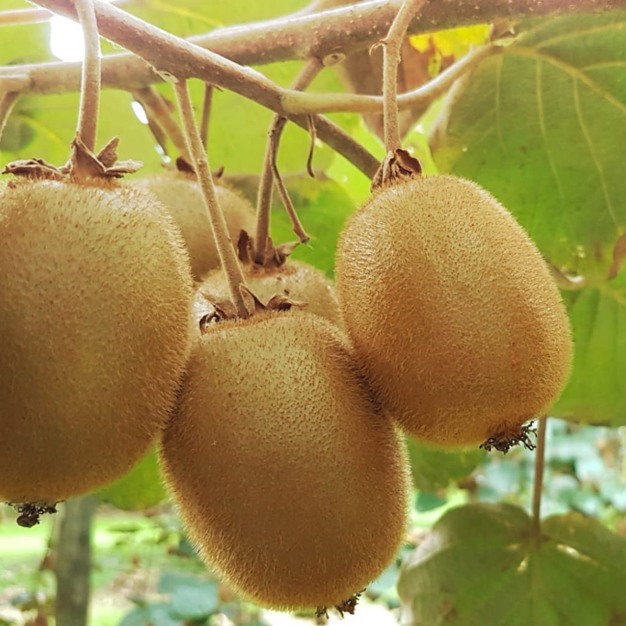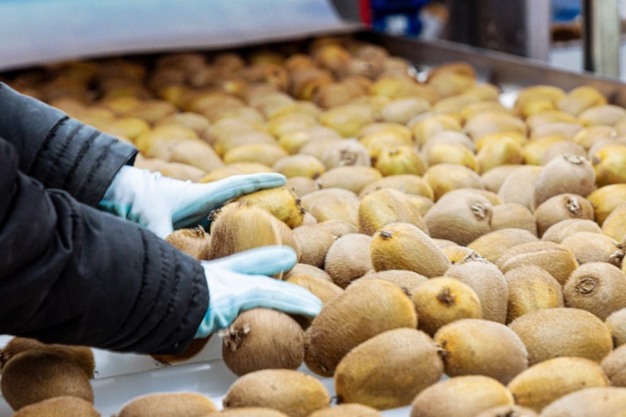"This year, French kiwi volumes will arrive very gradually, due to smaller volumes and a late harvest which is still in progress," according to the French Interprofessional Kiwi Agency (BIK).
 As every year, the Interprofessional Kiwi Agreement allows French green kiwis to be marketed from November 6th - © BIK / Antoine Heusse
As every year, the Interprofessional Kiwi Agreement allows French green kiwis to be marketed from November 6th - © BIK / Antoine Heusse
 A French kiwi harvest in line with the previous one
A French kiwi harvest in line with the previous one
"Like last year, the 2024-2025 season will be marked by a small French harvest, despite the larger sizes. The fruit will be pretty, but quantities will be smaller, requiring a fair price to enable growers to make a living from their harvest. Against a backdrop of inflation, it will be necessary for all the links in the fresh fruit and vegetable marketing chain to make an effort to ensure that the price paid by consumers does not increase indiscriminately. The 2024 harvest was late, with the last orchards harvested last week. The kiwi is a fruit that needs time to ripen between harvesting and marketing. The introduction of the French origin label will therefore be staggered over the coming weeks, so that we can really start marketing large volumes of fruit in January 2025."
Stable European production
At the annual meeting of the International Kiwifruit Organisation (IKO), held in Greece from September 24th to 26th, 2024, the French delegation from BIK, a founder member of the IKO, presented the French data, the health situation and the research and experimentation work undertaken by BIK. Discussions between the countries led to the conclusion that the 2024 European production was stable, taking all varieties together. The Hayward variety is down in Spain, Portugal and France, where the weather has been much the same, making kiwi production difficult. Yellow-fleshed varieties continue to grow.
"There are three conclusions to be drawn from this 43rd IKO edition. Climate change is having a visible impact on kiwi production. These are challenges that all producing countries are going to face, and knowing how growers will resist the impact of climate change, and the means to be put in place to do so, will certainly be an important subject at future IKOs. Secondly, the rapid increase in yellow-fleshed kiwi orchards is a fact, even if certain countries such as Spain, Portugal and Greece have not yet taken this step. Climate change could encourage this development. Finally, European inflation is leading to a general fall in fruit and vegetable consumption, and kiwis are not excluded from this trend, even though their nutritional qualities mean that they are still doing well. The communications in favour of kiwifruit put in place by the various producing countries are therefore essential for the future of our sector."

Increased vigilance against the risk of francization
"In such a context, the risk of francization is real," warns the BIK agency. "BIK members will step up their vigilance, leading if necessary to requests for inspections by the BIK to the DGCCRF. Spearheading the fight against francization, the BIK is also working on the creation of a "French Origin" database to identify the French origin of kiwis through analysis. After 3 years of building this database, and with the introduction this year of foreign samples into the database, the results are very positive. The limits of the French origin have been consolidated, and the use of the data is considered reliable for French samples (well classified at 99%). 2024 will therefore be a year of consolidation for the database, including increasing the number of foreign samples and introducing blind samples for the laboratory. This tool will help protect French kiwi production."
An exotic communication program
For the second year running, the French kiwifruit communications program will focus on the theme of French exoticism. "An original cookbook with exotic recipes has been created for this new season. Other new recipes will also be shared on our social networks this year, along with a number of new features: portraits of producers, the history of kiwifruit told through archive photos, other new recipes just as delicious as the previous ones, a section "debunking" preconceived ideas about French kiwis (too expensive, nowhere to be found in shops...) and other educational and humorous publications."
Photo credit: BIK
For more information:
BIK (Bureau national Interprofessionnel du Kiwi)
100 All. de Barcelone, 31000 Toulouse
Phone: +33(0)5 61 22 17 89
lekiwidefrance.fr










